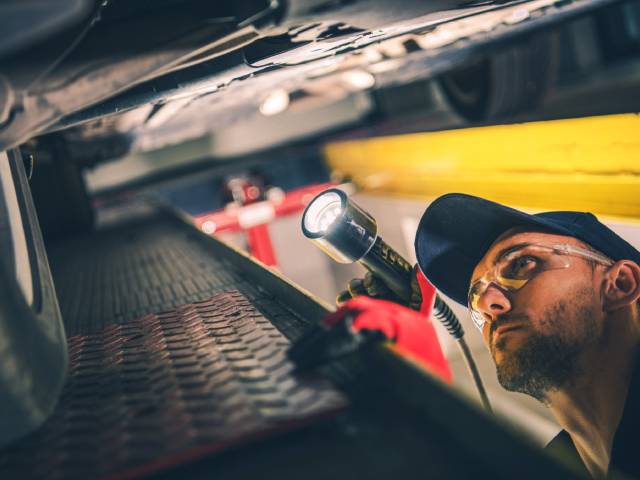

As every driver already knows, keeping up with regular oil changes is crucial for the health of a vehicle. However, there are many other things that contribute to a vehicle staying in good condition. Many mechanics these days will perform inspections while changing your oil, but not all of them do. If you know which things you should ask your mechanic to check during your next oil change, you’ll be able to make sure your car remains in excellent health for years to come.
Since your mechanic is already dealing with oil, it’s a good idea to have them check other essential fluids in your car while they’re at it. This includes coolant, brake fluid, transmission fluid, and power steering fluid. Ensuring these fluids are at optimal levels can prevent bigger issues down the road.
Your tires are your car’s only contact with the road, so it’s important they’re in good shape. Ask your mechanic to inspect the tire tread for wear and tear and to check the tire pressure. Properly inflated tires ensure better fuel efficiency and safer driving conditions. This won’t be necessary if you’re planning on buying a new set of wheels, but you could always ask them to mount them for you since there are a few benefits of having aftermarket wheels professionally installed.
Brakes are one of the most critical safety features of your vehicle. This is why you should have your mechanic inspect your brake pads and rotors during your oil change. If they show signs of excessive wear, it might be time for a replacement. Catching brake issues early can save you from more expensive repairs later on and keep you safe on the road. Have your mechanic replace your brakes if necessary once they’ve finished with your oil.
Car battery issues often seem to appear out of nowhere, usually at the most inconvenient times. To avoid getting stranded, get your mechanic to test your battery’s health and charge during your oil change. This simple check can give you peace of mind and help you avoid unexpected breakdowns.
Belts and hoses are a critical part of your engine’s operation. Worn belts can snap, and cracked hoses can lead to leaks, conditions which can both cause significant engine damage. During your oil change, have your mechanic inspect these components for any signs of wear or damage.
Your car’s air filters play a big role in keeping the engine clean and running efficiently. Dirty or clogged air filters can reduce your car’s performance and fuel economy. Ask your mechanic to check both the engine air filter and the cabin air filter to see if they need replacing. If they do, now would be a great time to perform that service.
Visibility is key to safe driving, yet lights and wipers are often overlooked during vehicle inspections. Ask your mechanic to make sure your headlights, brake lights, and turn signals are all working properly. Also, have them check the condition of your windshield wipers. If they’re streaking or not clearing your windshield effectively, it’s time for new ones.
24World Media does not take any responsibility of the information you see on this page. The content this page contains is from independent third-party content provider. If you have any concerns regarding the content, please free to write us here: contact@24worldmedia.com
